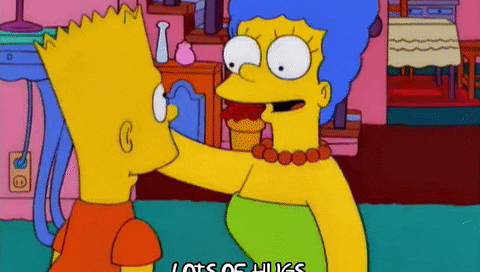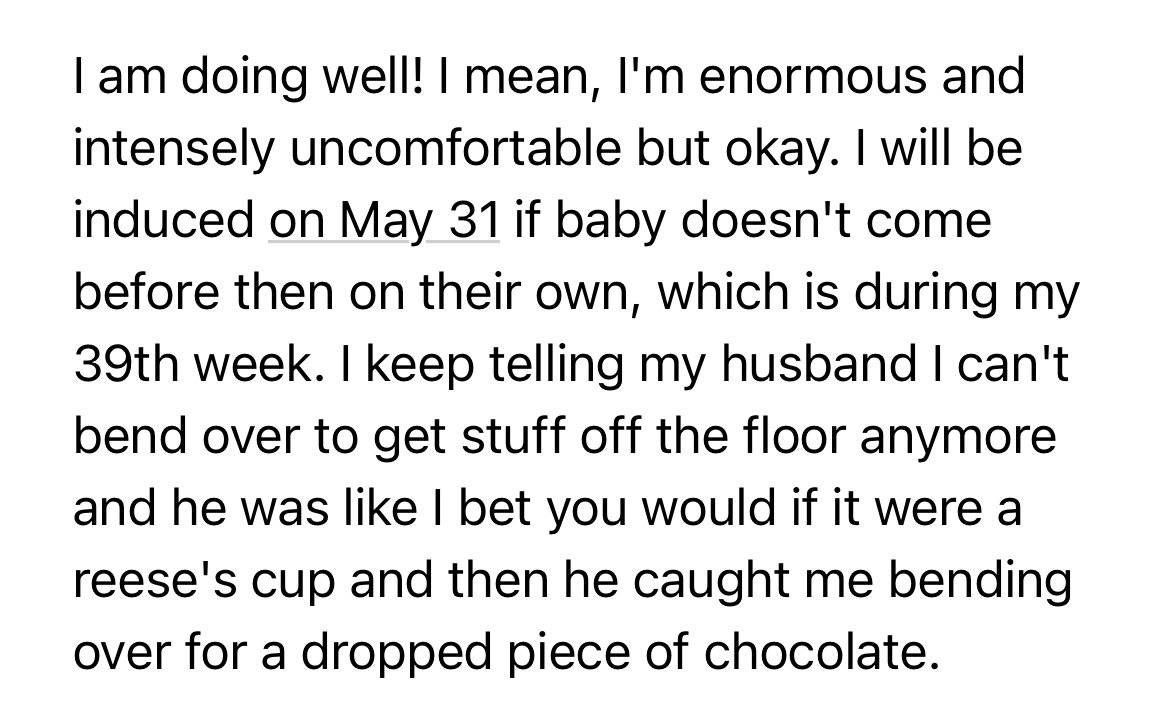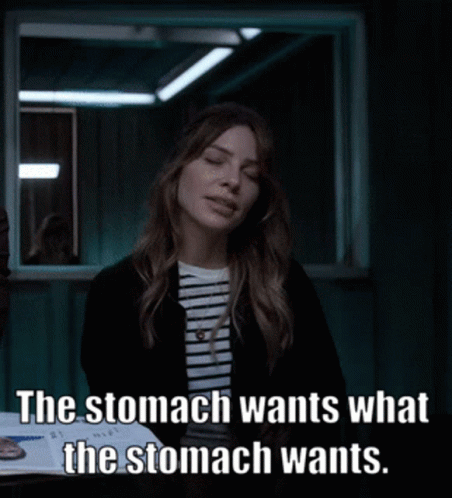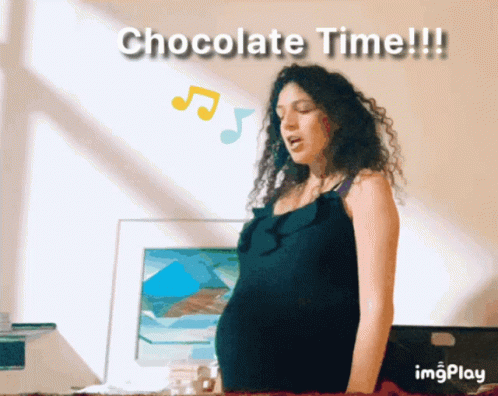Questions for a witchy ADHD expert
A conversation with Momspreading's Sarah Wheeler about kids and adults with ADHD
Sarah Wheeler, who runs the newsletter Momspreading, is a teacher, counselor, school psychologist, and mom of two in California. She’s written for Evil Witches before about having ADHD but I wanted to interview her after I began to assort a little pile of questions about ADHD over the last few months. These were inspired by my kid getting diagnosed in the spring (after years of me low key wondering if he had it), talking about ADHD with other witches, and also noticing that a lot more adult women have been happily diagnosed with ADHD. Our chat is not meant to encompass all experiences with ADHD or supersede advice you’d get from a pediatrician/therapist/social worker. But maybe you had an “explanation hope” about ADHD or just want to hear more about it. Read on!
When our son got diagnosed this spring, pediatrician said there was an ‘epidemic’ of ADHD diagnoses at the time. Have you noticed that? And if that's the case, why do you think that is now?
It's an epidemic if you think it's a disease. Some people think about it as an awakening, or an identity explosion. But during COVID, we saw a huge uptick in ADHD assessment requests, and I'm pretty sure in diagnoses.
There's definitely places and cultural subgroups where ADHD is not getting diagnosed enough, and then there's other places where it's totally over-diagnosed. That can all be true at the same time. But in the pandemic, what we asked kids to do was totally unreasonable. For people who maybe do have an ADHD brain, that revealed those challenges to their parents. For some people it was like, "Oh, this was happening, but I didn't see it before.” And then there's other people where probably they don't have ADHD in normal life, but it was such an extreme situation. We all experienced difficulty getting started, being motivated, finishing things. That happened with kids too.
I’ve informally noticed more adult women either getting an official diagnosis or saying they suspect they have ADHD. What is your take on that?
There's a lot of assessing psychologists who get their panties in a twist about people self diagnosing, or like a college student requesting an ADHD diagnosis who gets As and Bs, and the psychologist is like, "You don't have ADHD." And I think that reveals some job insecurity maybe, but also some misunderstanding about the value of identity and all the impact of internal experience.
Now we're hearing from adults who are neurodivergent, and they're saying, "I never got a diagnosis because I did well at X, Y, and Z. But let me tell you what was going on in my head." And that shit is a trip. You're like, "Wow, if that's not impact, I don't know what is." I tend to be very generous about that. I think that, except in certain cases and for certain things, if you identify with that and you want to be part of that community, especially with something like ADHD, I think there's very little harm done.
[When I was diagnosed at 37], it wasn’t like, "Well, I have it now. I have my club card.” You could probably get a doctor to say you had ADHD, and another one wouldn't. I think what's valuable is to ask, “Would it be really useful to understand your brain as being like that, and to be in a community where people think that way? And would you learn about yourself and be happier?”
For kids I think it's a very different situation. It's really important to thoroughly assess what's going on when a kid is struggling instead of just getting their doctor or a school psychologist or someone to give you some questionnaires to ask, “Do or don't they have ADHD?” If you don't do a thorough assessment, you miss things all the time. I will get quick and dirty ADHD assessments of a kid I work with where there's no consideration of the facts that they're obviously dyslexic and that makes them lose focus, or they have a lot of anxiety, or their teacher or school has totally unreasonable expectations about self-regulation and executive functioning. Even if the kid also has ADHD, you're never going to come up with a good treatment plan unless you get the whole picture.
What do you tell parents, or even non-parents, about how to get through the worry that that by medicating your child, you're changing them or taking away their personality or taking away their spark?
It's all messy. I will say I've never been a parent who had to think about medicating my child. Like a lot of things, I totally shilled out advice about it before I had kids. Now I'm like, "I can't believe I talked to parents about meds like that. What an asshole." This is such a complicated decision.
Now my spiel about it a lot is, pay attention to your kid. How do they seem to be feeling? Is this causing them distress or is it just inconvenient for other people? How do they feel on the meds? For some kids, it's really not good and they don't like it, or they lose some important luster and all of that. And other kids really articulate, even young ones, that it makes a big difference for them.
Now some of that is they aren't being negged on much, which is a bummer. You're like, "If the teacher just let them be themselves a little bit more, they wouldn't feel like such a dirtbag.” But it's tricky because there's real stuff in there too about having access to accomplishment, being able to cut away a little bit of the noise that you can do things that you are motivated to do, like making friendships. And when meds can help those things happen, I think it can be really nice.
I was talking to a friend who has a kid who just went on meds and I was having the little judgment that I have sometimes that's like, "We just want to make our kids into little cookie cutters. And education is more and more requiring kids to just sit in their seats and take tests and stuff. And this is our problem, not theirs, etc etc." But she was talking about her kid who several times a day at school becomes upset about something and he totally melts down. And he can't learn, and his friendships suffer, and it feels really good to him when that's not happening. That's hard to argue against.
What have you heard that’s simple or clever in terms of explaining ADHD and meds to kids?
My colleague Liz Angoff has published a really great post on explaining ADHD to kids and has a free workshop coming up on the topic.
I like admitting, "We have this setup for you and it's not great and it doesn't really fit your brain that well." I talk to kids a lot about how school is temporary. It does last for a long time, but there will be life where, as they get older, they get more and more choice in what they're doing. And I think it's valuable to explain to kids that school is a very special place that relies on a really narrow set of skills.
I've heard career coaches talk about this as the zone of incompetence. The things that schools ask us to do are almost all centered in the zone of incompetence for ADHD kids, if they're traditional schools. You’re being asked to do a lot of shit that's not in your wheelhouse. That's important too, identifying what that is. “Some kids, that's easy for them. And then they have some other problem somewhere else. But for you, that's tricky for your brain. This is going to help make school easier for you. And we think that'll make you happier, more able to show what you know, more able to have come with your friends, etc. But, you tell us."
Meds are another tool that help make the roads from the tricky pathways move a little smoother. They're not going to solve your problems. Meds will not teach your kids social skills. They won't teach your kid how to organize a multi-part assignment. But they create a baseline that makes those skills easier to work on.
It’s hard to discern as kids get older what is ADHD vs. typical spicy little kid behavior. What do you tell parents about how they know when it's time to get a Vanderbilt assessment or go seriously talk to your pediatrician about ADHD concerns?
I have a whole post-capitalism messy version of that, which is there's no way to know. But in a practical way, I would say is your kid distressed? Do they want to make friends and they keep fucking it up (with great love)? Do they know that they're smart and they know everything, but then they cannot take tests? Those are the kinds of patterns that we see especially in kids who weren't diagnosed and they're getting older and those are the little hints they're starting to feel shitty because of things like that.
What is the age, reasonably, that kids start getting diagnosed?
The most common is around second or third grade. There's also a little bump in middle school because when executive functioning demands are raised, it's naturally hard for a lot of kids. And again, sometimes they're unreasonable, but for ADHD kids that have been coping so far, sometimes that's a bit of the dam breaking. There's such a shift in what's expected of kids usually in school around second, third grade. The workload, homework, all that stuff that really draws out the challenges of ADHD. You see preschoolers and stuff get diagnosed too, where a kid is like legit showing that stuff in preschool in a way that is really tough for the child.
There's a quote that I use a lot: "[ADHD] is a biological condition with extreme environmental influences." It doesn't mean that it's not real or that you should just not expect anything from your kid and that'll be a good environment for them. But I've seen people who might have a kid who has those tendencies who at one preschool is a total fucking mess and it's a really bad fit for them, either just as a kid or they do have ADHD, and then something shifts. They get a new teacher. They go to a different school. It's a totally different story.
Subtle changes in the environment make a huge impact on young kids and especially on people who are ADHD. You might not have to get a diagnosis or medication or whatever of a five year old if you can shift the environment. Do that first, and you don't see any differences to go into something more significant.
Do you have any dos or don'ts for dealing with siblings who present as neurotypical who might be salty that their brother or sister has different expectations?
It's a scientific fact that everybody's brains find some things easy and other things tricky. You might say, "Look at me and Dad. You guys might not notice this, but I do all the billing because that's tricky for Daddy's brain, but it's really easy for his brain to make play dates. We work that out together and it's hard, but like that's what you do in relationships. And we're working towards that as a family. Unfortunately it can be particularly frustrating if the thing that's tricky for your brother or sister's brain is letting you use their stuff or using an inside voice."
This isn't about ADHD, but I just did a sleep chart for my four year-old and my six year old was like, "I want to do that." And I was like, "Well, you don't have problems with sleeping, but everyone has something they're working on. Why don't we think about something that you can be working towards?” You give them the opportunity to have their own whatever you're giving the other kid, rewards, or free passes. I see amazing sibling relationships that aren't without lots of difficulty and pain, but where kids really get like, "Well, my brother's autistic” or “My sister's ADHD: this thing's easy or hard for her." And they're really capable of that, even if they also fight a lot.
I've started having those conversations with my kids around disability and neurodiversity, where they know that all brains and bodies are different. It's a lot easier, if there's a diagnosis or whatever, to put it on that foundation. My kids know I have ADHD and that's a kind of brain. My son's like, "I think I'm half ADHD. I don't really remember things, but I'm not as clumsy as Mommy."
Do you have advice for parents who feel guilt about being hard on their ADHD kids pre-diagnosis on how to either forgive yourself and move ahead?
I mean it's hard to be a parent. Of course, I make all kinds of assumptions about what I imagine other people's lives are like, but there's no free pass in parenting. But it's hard to have a dysregulated kid who doesn't do what you ask them to do. And there are kids diagnosed or not who have a lot more than other kids. That is real. Even if you know your kid has a diagnosis, I don't know if it's less frustrating. But that's the way that their brain was before the diagnosis. They're still the same kid and they maybe also were being a dick. ADHD people can also be dicks, or refuse to do something that they're perfectly capable of.
You can say, "Oh, it's tricky for mommy's brain to stay calm when I'm angry." Or like, "It really frustrates my brain when people don't do what I want them to do. And that's just life. I have to work on that a little bit."
Have you noticed any correlation between screen obsessiveness and ADHD, or is that just a kid thing?
This is an area that we keep learning more about and I'm not the most up to date on it. But there is stuff about how kids with ADHD are more likely to be addicted to screens. If we think of some aspect of ADHD as a dopamine deficiency, which is everybody is getting these hits of good feeling all the time, someone with ADHD might think, “I need more to get those good hits. I need something bigger. I need it to be something I really care about. I don't get that little hit of dopamine when I tidy my socks or whatever.” Screens give everybody that really regularly, and maybe a little bit more for people with ADHD because it's all dysregulated.
Also I think about how much kids with ADHD just get shit on all the time. Imagine then you have this place where no one fucks with you. For older kids, a lot of times they have friends through games that really feel like they're easier friendships than in person. You're just constantly getting reinforcement for things. It just feels regulating and nice. I think it's helpful to just be like, "Oh, this feels nice for them. They're not just like a weird junkie that's abusing whatever, and doesn't want to listen to me.”
If you're really worried about it, I think about, “Okay, it's not going to be screens, but where else can we get them some hits? Are we really thinking about their strengths and what they're good at, and giving them those minutes or hours in the week where they're getting that good feeling and doing the thing that's in their zone of genius?”And when the screens are more social, that can be really good.
What are you telling folks about what to expect for the school year for their kids and for themselves?
It depends where you are, but one is that there's a huge backlog in assessments and going through special education or 504 processes at schools. I don't know exactly what to tell people to do with that. As always, it's a combination of patience and understanding and firm persistence.
Also, learning and development took a major hit from the pandemic. We’re crawling out of a hole, on national level and for a lot of kids on an individual level. It’s not as bad as it was last year but teacher are still saying, “This grade looks a year younger than the class I had four years ago.” All kids got in a bit of hole with both social development and learning and we need to have compassion and understanding around that.
The start of the school year, for all kids, can be a hard transition. Be compassionate and patient. It’s not going to happen tomorrow that your kid is going to all of a sudden be able to navigate middle school and multiple teachers but if you can start systematically getting used to it, developing some systems now, even if you don’t expect them to be done.
The first few weeks of school, all they’re doing is systems and social emotions. As a parent, it’s helpful thing to think, “That's what I should be holding to. I'm giving them extra love, they’re making new friendships, and emotional time and we’re setting up some systems for the rest of the year.”
Subscribe to Sarah's newsletter, Momspreading, or contact her about workshops and parent consultation. She’s also helpfully curated a list of favorite ADHD resources in case you are reasonably wary of internet research.
End credits
Thanks for reading Evil Witches, a newsletter for people who happen to be mothers. Feel free to forward this to someone who might find it useful. If you haven’t yet, I hope you consider becoming a paid subscriber which gets you bonus content and subscriber-only threads but moreover supports independent, unsponsored reporting, essays and humor:
If you have any questions, feedback, or suggestions for the newsletter you can reply to this email or talk to other witches on Twitter. Today I’m asking people to share beautiful peaceful (by which I mean terrified and tethered) birth photos in honor of my unexpected induction ten years ago.
The newsletter archives live here. Some previous issues include speaking with teacher moms, an informal survey about whether parents who sleep train feel bad about it later in life, and how two parent households manage when one or more of you is hung over.
Hot news: We have surpassed the $5,000 Evil Witches States Project Giving Circle goal! So, as promised I won’t mention it in this space again from here on out but if you want to add a little bit more for good luck, just to be cute, that is not discouraged.
One witchy thing
Excerpt from an email from a pregnant friend of mine earlier this year:







I forgot to plug Joel Nigg's Getting Ahead of ADHD and Dawson and Guare's Smart But Scattered books. I think they're some of the more useful and less pathologizing books if you have an ADHD kid. Nigg's book covers a ton, so it's good to look at if you just got a diagnosis or are curious about one for your kid.
"It's an epidemic if you think it's a disease."
YES. Brb, telling this to everyone who calls Autism an epidemic.